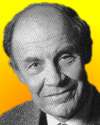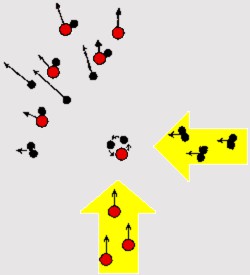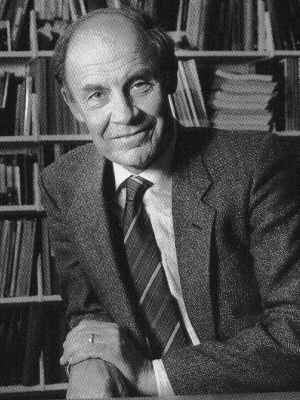 (source)
(source)
|
Dudley R. Herschbach
(18 Jun 1932 - )
American chemist and educator who pioneered the use of molecular beams to investigate the processes of chemical reactions.
|
Science Quotes by Dudley R. Herschbach (1 quote)

Two directed molecular fluxes are shown (idealized molecular beams). Where they cross, a reaction can take place and new molecules can form. In this example, oxygen atoms (red) react with hydrogen molecules (black), and form a long-lived complex, which is an energy-rich and thus unstable water molecule. Each complex dissociates finally to a hydrogen atom and a hydroxyl radical (departing top left). (source)
My interest in science was excited at age nine by an article on astronomy in National Geographic; the author was Donald Menzel of the Harvard Observatory. For the next few years, I regularly made star maps and snuck out at night to make observations from a locust tree in our back yard.
— Dudley R. Herschbach
In Wilhelm Odelberg (ed.), Les Prix Nobel. The Nobel Prizes 1986 (1987).
See also:
- 18 Jun - short biography, births, deaths and events on date of Herschbach's birth.
- Dudley Herschbach, Chemist - Biography.
- Researchers Try to Trap, Tame Wild Molecules - Harvard University Gazette (27 Mar 1997).

 In science it often happens that scientists say, 'You know that's a really good argument; my position is mistaken,' and then they would actually change their minds and you never hear that old view from them again. They really do it. It doesn't happen as often as it should, because scientists are human and change is sometimes painful. But it happens every day. I cannot recall the last time something like that happened in politics or religion.
(1987) --
In science it often happens that scientists say, 'You know that's a really good argument; my position is mistaken,' and then they would actually change their minds and you never hear that old view from them again. They really do it. It doesn't happen as often as it should, because scientists are human and change is sometimes painful. But it happens every day. I cannot recall the last time something like that happened in politics or religion.
(1987) -- 


